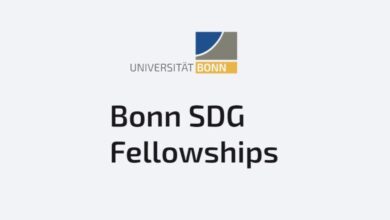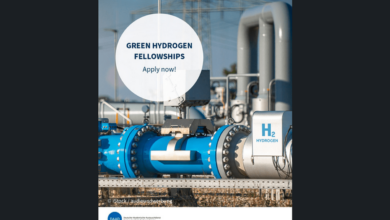Apply for the Woodrow Center International Fellowship Program Fully Funded to USA

Closing Date: 1 October 2024
Apply for the Woodrow Center International Fellowship Program Fully Funded to USA
About the Center
The Woodrow Wilson International Center for Scholars aims to unite the world of ideas to the world of policy by supporting pre-eminent scholarship and linking that scholarship to issues of concern to officials in Washington.
Congress established the Center in 1968 as the official, national memorial to President Wilson. Unlike the physical monuments in the nation’s capital, it is a living memorial whose work and scholarship commemorates “the ideals and concerns of Woodrow Wilson.” As both a distinguished scholar and national leader, President Wilson felt strongly that the scholar and the policymaker were “engaged in a common enterprise.” Today the Center takes seriously his views on the need to bridge the gap between the world of ideas and public policy, bringing them into creative contact, enriching the work of both, and enabling each to learn from the other. This continuing dialogue between public policy and scholarship makes the Center unique.
In addition to its residential program, the Center conducts research through its programs, organizes conferences and seminars, and disseminates the content of its work and fellows’ research through its website and email marketing. The Center invites Fellows to take part in the Center’s conferences, meetings and seminars and to benefit from the wide range of dialogue that takes place at the Center.
Woodrow Center International Fellowship Program Application Process
The Wilson Center invites scholars, practitioners, journalists and public intellectuals to take part in its flagship international Fellowship Program and to take advantage of the opportunity to engage actively in the Center’s national mission. The Center awards approximately 15-20 residential fellowships each year. Fellows will be affiliated with one or more of the Wilson Center programs/projects and are encouraged to interact with policymakers in Washington, D.C., with Wilson Center staff, and other scholars who are working on similar research and topics.
Eligibility
- Citizens or permanent residents from any country (applicants from countries outside the United States must hold a valid passport and be able to obtain a J-1 visa even if they are currently in the United States). (Read more information on visas.) Please contact the Center if you have any questions about your eligibility to obtain a J1 visa.
- Citizens or permanent residents from any country (applicants from countries outside the United States must hold a valid passport and be able to obtain a J-1 visa even if they are currently in the United States).
- Academic candidates must be at the post-doctoral level and have published a book or monograph beyond the Ph.D. dissertation.
- Practitioners or policymakers with an equivalent level of professional achievement
- English proficiency as the Center is designed to encourage the exchange of ideas among its fellows
Notes on Eligibility
You do not need an institutional affiliation to apply. For most academic candidates, a book or monograph is required. Scholars and practitioners who previously held research awards or fellowships at the Wilson Center are not precluded from applying for a fellowship. However, the nature and recency of the prior award may be among the factors considered during the selection process, and by the Fellowship Committee of the Board of Trustees.
Selection Process
Applications that satisfy the eligibility requirements are subsequently subjected to a multi-stage review process involving both internal evaluations by Wilson Center experts and external evaluations by specialists with relevant expertise. Final decisions about all grant awards are contingent on the approval of the Center’s Fellowship Committee of the Board of Trustees and subject to available funding.
The basic criteria for Woodrow Center International Fellowship Program selection are:
a) significance of the proposed research, including the importance and originality of the project;
b) the relevance of the project to contemporary policy issues; try to convince the reader that there is some urgency or importance in your work that can resolve a larger problem.
c) the relevance of the project to the programmatic work of the Center;
d) quality of the proposal in definition, organization, clarity, and scope; describe what the reviewers will learn from your project, why it is important, and how the reviewer will know your conclusions are valid. A clear hypothesis or step-by-step argument of a central problem helps capture the essence of your work for the reviewer. Also describe your methodology, i.e. how and why your approach is the best way to deal with such a problem. Since each field has different methodologies that the reviewer may not know, tell the reader what archives, sources, and techniques you plan to employ.
e) capabilities and achievements of the applicant and the likelihood that the applicant will accomplish the proposed project; not only should your proposal demonstrate how you have the technical know-how and ability to reach some conclusion, but that the conclusion is not preconceived. The proposal should convince the reviewer that there is something genuinely at stake with your inquiry and that your project will yield interesting results.
f) potential of a candidate to actively contribute to the life, priorities, and mission of the Center by making expert research accessible to a broader audience; remember that one of the Center’s main goals is to help inform policymakers to make well-informed decisions.
Click Here To Apply
Follow Opportunities For Everyone on Social Media




